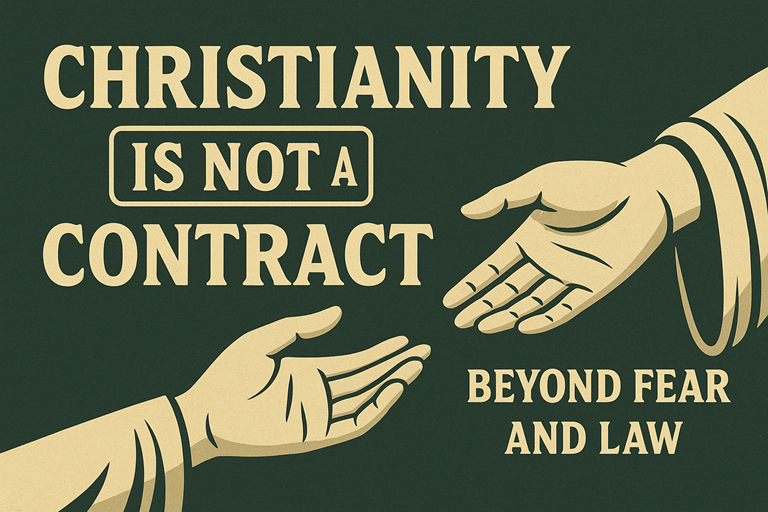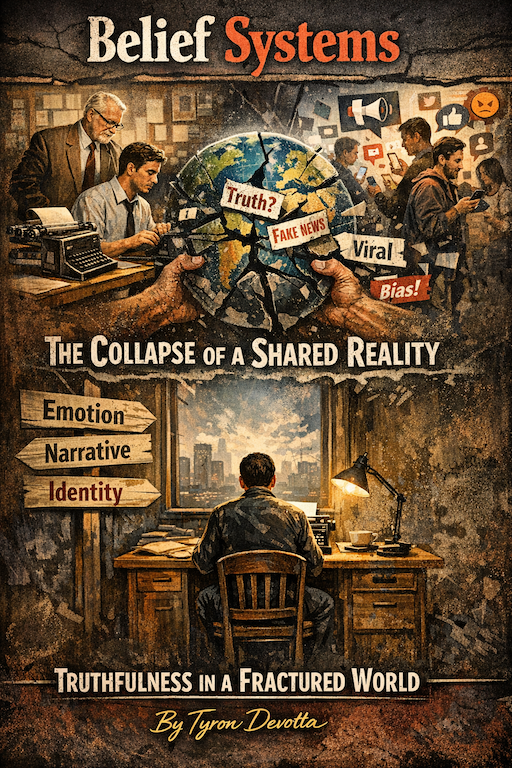For many, religion is instinctively understood as a contract. In the ancient world of the Old Testament, that is precisely how faith was framed: God promised blessings for obedience and curses for disobedience. Justice was transactional, summed up in the stern formula: “an eye for an eye, and a tooth for a tooth.”
But Christianity, as Jesus taught and lived it, was never meant to be a continuation of that contract. It is not give-and-take. It is not bargaining with God. It is not a ledger of sins and good deeds. At its very center, Christianity is built on something far more radical and unsettling: love.
Jesus overturned the old formula of retaliation with the command to “turn the other cheek.” He replaced the contractual ethic of fairness with the disruptive ethic of grace: “Love your enemies, do good to those who hate you.” And he summed up the new covenant in one clear directive: “As I have loved you, so you must love one another.”
Conflict
Yet, here lies the paradox. Ordinary Christians — many of us who recite these words week after week — struggle to grasp their meaning. Why?
Part of the reason is cultural. We live in a world that measures everything in transactions: work for pay, crime for punishment, reward for effort. In such a system, love without conditions feels impractical, even naïve. Grace — the idea that forgiveness comes freely, undeserved — cuts against the grain of human instinct.
Another reason is institutional. Churches, like all human institutions, often fall back on rules, rituals, and obligations because they are easier to enforce than love. The language of “give-and-take religion” keeps order; the language of radical love disrupts it. It is safer to preach fear of judgment than to teach freedom in grace.
Tithe?!
In the Old Testament, giving was governed by law. The Israelites were commanded to tithe — to give 10 percent of their harvests, flocks, and income to support the temple, the priests, and the poor (Leviticus 27:30; Numbers 18:21). It was a duty, part of the covenant contract: give your portion and remain in blessing.
But in the New Testament, Jesus and the apostles shift the framework entirely. The measure of giving is no longer 10 percent. The measure is love.
Paul writes in 2 Corinthians 9:7:
“Each of you should give what you have decided in your heart to give, not reluctantly or under compulsion, for God loves a cheerful giver.”
This verse dismantles the idea of a fixed percentage. Christian giving is not about meeting a quota, but about the freedom of the heart. The generosity God values is voluntary, joyful, and rooted in love.
Jesus also redefined giving through his example. When he saw the widow put two small coins into the temple treasury, he said:
“Truly I tell you, this poor widow has put in more than all the others. All these people gave their gifts out of their wealth; but she out of her poverty put in all she had to live on” (Luke 21:3–4).
By this measure, the widow who gave almost nothing in material terms gave everything in spiritual terms. Christian giving is not about percentage, but about proportion, sacrifice, and sincerity.
And in Acts 2:44–45, the early church embodied this radical generosity:
“All the believers were together and had everything in common. They sold property and possessions to give to anyone who had need.”
This was not a legalistic tithe. It was a community transformed by love, giving far beyond 10 percent when love demanded it.
In truth, the law of the tithe has no place in modern Christian love. For Christians, giving is not bounded by percentages; it is liberated by love. Love does not stop at 10 percent. Love gives according to need, according to compassion, according to grace. Sometimes that might be less, sometimes far more.
The old covenant said: “Give ten percent and fulfill your duty.”
The new covenant of Christ says: “Give as love compels you, freely and cheerfully.”
Christian giving is therefore not smaller than the tithe — it is greater. It is not legal, but relational. It is not transactional, but transformational.
As Jesus said in Matthew 10:8: “Freely you have received; freely give.”
That is the measure of Christian generosity.
Not Fear
To be Christian is not to live under the curse of fear, nor under the weight of the law. The Old Testament covenant bound people to fear — fear of judgment, fear of punishment, fear of falling short. Christ shattered that framework. As Paul writes in Galatians: “Christ redeemed us from the curse of the law by becoming a curse for us.”
Fear says: “I must earn God’s favor, or else I will be condemned.”
Love says: “God has already loved me; now I am free to love in return.”
The law demands: “Do this and live.”
Grace proclaims: “Live, because this has already been done for you.”
This does not mean the Christian life is lawless. Rather, it is guided not by fear of punishment but by the call to love. As John reminds us, “Perfect love drives out fear.” When fear no longer rules us, love can flourish.
And to the world at large, this is the true mystery of Christianity: it dares to say that we are no longer slaves to law or fear, but children of God, heirs to freedom. To live as a Christian, then, is not to cower under the shadow of commandments, but to walk boldly in grace.
The greatest tragedy is not that the world misunderstands Christianity. The tragedy is that Christians themselves often do. We cling to the old covenant of give-and-take when we have been offered something far greater: a covenant of love.
If we truly understood this, our faith would not be reduced to ritual or fear, but transformed into freedom — the freedom to love without counting, forgive without measure, and live without the need for contract. That is Christianity’s mystery, and its gift.













